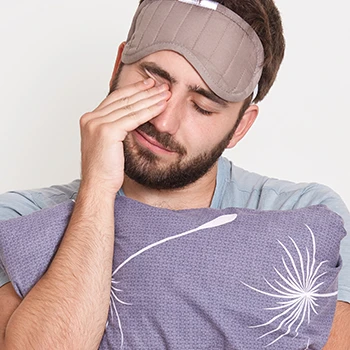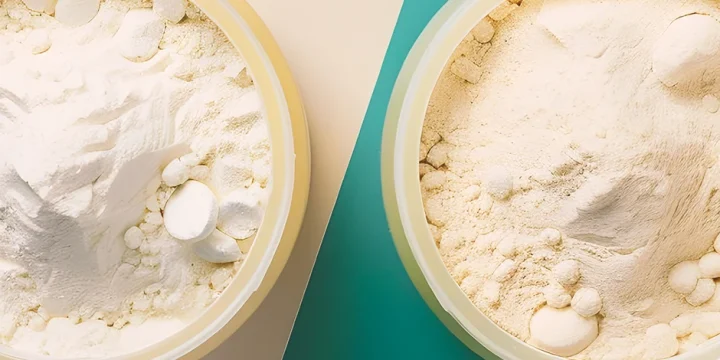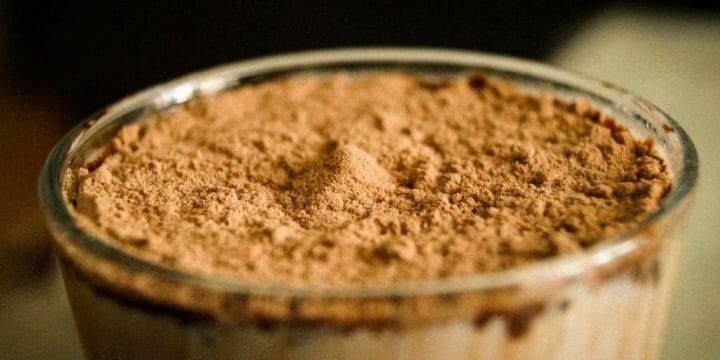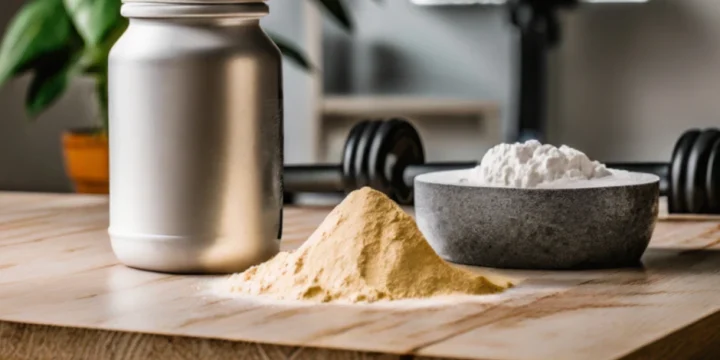A common question I field from my fitness clients is whether their sleep or lack of it impacts their testosterone levels.
This question definitely has merit, so to understand the relationship between sleep and testosterone more profoundly, I took a couple of weeks to examine peer-reviewed papers on the subject, and then I took my notes to a medical colleague for a constructive discussion and deeper analysis.
Here’s what I learned.
Quick Summary
- The relationship between sleep and testosterone is explored through research, indicating that sleep loss can decrease testosterone production.
- A University of Chicago study found that sleep deprivation in young men leads to a significant reduction in testosterone levels, akin to age 10-15 years.
- The research conducted by the National Institutes of Health (NIH) reveals a 10-15% decline in testosterone levels in healthy young men due to sleep loss, which impacts mood and vigor.
- In my view, this highlights the critical importance of adequate sleep for maintaining hormonal balance and overall health.
How Sleep Affects Testosterone Production

During my research, I found many studies about testosterone and sleep that suggest testosterone deficiency is connected to sleep disorders and that sleep loss can decrease testosterone production.
One study, in particular, caught my attention, so let’s have a look.
University of Chicago Medical Center Study
The University of Chicago Clinical Research Center conducted the study, partially funded by the National Institute of Diabetes and Digestive and Kidney Diseases and National Institute of Health grants [1].
This week-long study on healthy young men yielded intriguing results showing that skipping sleep reduces testosterone levels as if a man has aged 10-15 years.
The young, healthy men who participated in the study were college-aged and required to pass a stringent screening for endocrine or psychiatric disorders.
These men spent three nights in the lab sleeping up to ten hours, followed by eight nights of sleep restriction (less than five hours).
Their blood testosterone levels were recorded every 15-30 minutes for 24 hours on the last day of the ten-hour sleep phase and the last day of the five-hour sleep phase.
The results support that blood testosterone levels declined 10-15% in healthy young men with sleep loss and the study participants self-reported reduced mood and vigor levels.
Additional Studies

A study published by the National Institutes of Health (NIH) shows that obstructive sleep apnea (OSA) is more prominent in men than women, and it begs the question, are T-levels a factor [2]?
Sleep apnea is linked to low testosterone and is disruptive to sleep, which in turn decreases testosterone levels, a cycle that seems hard to break.
According to a study published by the National Institutes of Health (NIH), which reviewed 129 papers, treating OSA with continuous positive airway pressure (CPAP) is not an effective strategy for managing lower testosterone levels (hypogonadism) [3].
Just as sleep can affect testosterone levels, testosterone levels can affect sleep. Both insufficient and high testosterone levels can affect the quality and duration of sleep.
Signs of Low Testosterone
Reduced sleep quality or deprivation can further exacerbate low testosterone symptoms like fatigue and stress, impacting a man’s overall health.
Symptoms include:
- Reduced sex drive
- Erectile dysfunction
- Body hair loss
- Less beard growth
- Increased body fat
- Decreased bone density
- Loss of lean muscle mass
- Chronic fatigue
- Obesity
- Depression
- Poor concentration
“Low testosterone levels are associated with reduced well-being and vigor, which may also occur as a consequence of sleep loss”
- Eve Van Cauter, PhD
Related Article: Best Time to Take Testosterone Boosters
Tips to Improve Sleep

There are several things you can do to improve sleep duration and quality.
First, you can incorporate physical activity into your daily routine to get a good night’s sleep, and as a bonus, exercise is one of the ways to naturally increase testosterone as well.
Avoid eating a heavy meal shortly before bed; feeling overstuffed is uncomfortable and doesn’t facilitate sleep very well.
After integrating these sleep improvement tips into my own routine, I've experienced significant benefits
To further help you get a full night’s sleep, you should keep your sleep space:
- Cool - 65 degrees Fahrenheit seems to be the sweet spot. Only when your core temperature starts to drop, your body begins to facilitate sleep.
- Dark - Keep your drapes nearly closed, as even the smallest amount of light can disrupt some people.
- Quiet - Background noise from the traffic, especially sharp noises, can keep you from falling into deeper stages of sleep, as evolution made us sensitive to those cues so we can protect ourselves from nocturnal predators.
Stress can produce poor sleep quality as well, so make sure to manage and resolve stress or conflict before bedtime.
A consistent sleep schedule can keep your circadian rhythm (master internal clock) on track and promote quality sleep.
And finally, healthy sex life can reduce stress and alleviate sleep problems, and it also counts as exercise.
FAQs
Does Napping Increase Testosterone?
Napping can increase testosterone because it can decrease the stress hormone cortisol. High cortisol levels link to low testosterone, so eliminating stress by napping can hugely impact testosterone levels.
Does Sleeping More Than 8 Hours Increase Testosterone?
Sleeping more than 8 hours can increase testosterone if it is quality sleep. Testosterone levels peak during REM sleep, the final stage of the sleep cycle, and is where you spend 18-23% of your sleep.
References:
- https://www.ncbi.nlm.nih.gov/pmc/articles/PMC4445839/#:
- https://www.ncbi.nlm.nih.gov/pmc/articles/PMC2642982/
- https://www.ncbi.nlm.nih.gov/pmc/articles/PMC6712440/
About The Author
You May Also Like






